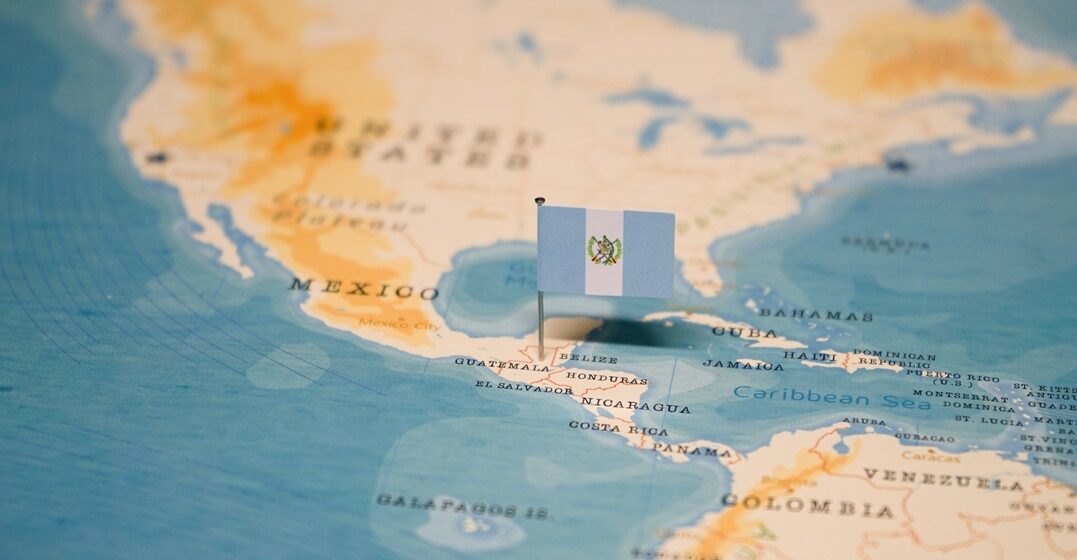Published on February 21, 2024

A short guide to Guatemalan Spanish

Guatemalan Spanish is known throughout Latin America as one of the most phonetically neutral variants of the language. Why? Because Guatemalans generally avoid lisping, don’t omit letters when pronouncing words and maintain a steady rhythm in their speech. For beginner learners, the Guatemalan variation of Spanish may be easier to understand than others. Even so, there’s more to Guatemalan Spanish than initially meets the eye (or ear!).
Guatemala’s history and demographics have led to the development of a unique variant of the Spanish language. Guatemalan Spanish, for instance, includes a number of loan words from Mayan and other indigenous origins — all of which have contributed to a linguistic character unlike any other.
Excited to learn more? Let’s explore some Guatemalan Spanish history, characteristics, words and slang.
Despite Guatemala being home to about 25 different languages (with over 20 of Mayan origin), Spanish is the official language and is spoken by nearly 93% of the population.
As is the case throughout much of Latin America, Spanish was introduced to Guatemala by Spanish colonists, who defeated the Mayan resistance in the 16th century. The proliferation of Spanish was subsequently reinforced by both missionaries intent on converting indigenous people to Catholicism and the establishment of Spanish-speaking schools.
Guatemala achieved independence from Spain in the 1820s, but the presence of the Spanish language and other Spanish cultural influences lingered. Nevertheless, the impact of Mayan dialects on Guatemalan Spanish is undeniable, and many words of Mayan origin have been incorporated into everyday vocabulary. Mayan culture remains an important part of Guatemalan heritage, and even today approximately 41% of the 18 million Guatemalans self-identify as Mayan.
Let’s now explore the distinctive phonetics and grammar of Guatemalan Spanish.
Due to demographics and geography, dialects typically vary by region. However, the pronunciation of Guatemalan Spanish remains more or less consistent throughout the country.
These are some general characteristics you can look and listen for:
Moving on to the grammar side of things, it’s worth noting the following:
Finally, it’s time to learn some Guatemalan Spanish words and slang! Infused with influences from Mayan and other indigenous languages like Nahuatl, everyday Guatemalan slang may feature words distinct from other Spanish variants.
Here’s a rundown of some common Guatemalan terms:
| Word | Meaning | Example sentence |
| a huevos | informal word to say “absolutely” | ¿Quieres venir a mi casa? (Do you wanna come to my place?) A huevos. (Absolutely.) |
| aguas | be careful/to mind something | ¡Aguas con el perro! (Mind the dog!) |
| boquitas | snacks | Vamos por unas boquitas. (Let’s get some snacks.) |
| brocha | someone who assists a bus driver, collects ticket fares and announces bus stops | Pregúntale a la brocha cuál es la parada. (Ask the assistant which one is the stop.) |
| burra | the bus | Voy en una burra. (I’m coming with the bus.) |
| calidá | of good quality | Este es café de calidá. (This is good-quality coffee.) |
| canche | a blondie (term of endearment) | Canche, ¿a dónde quieres ir hoy? (Blondie, where would you like to go today?) |
| cerote | dude | Cerote, ¿dónde estás? (Dude, where are you?) |
| chapín/ chapina | informal term for Guatemalan (instead of Guatemalteco/a) | Yo soy chapina. (I’m Guatemalan.) |
| charnel | a car | Mi charnel está averiado. (My car broke down.) |
| chilero/chilera | awesome/great | ¡Qué chilero! (How awesome!) |
| chivas | random stuff or possessions | Agarré mis chivas y me fui. (I took my things and left.) |
| chonguengue | a party | ¡Qué chonguengue el de anoche! (What a party last night’s was!) |
| chonte | a police officer | Pregúntale al chonte. (Ask the policeman.) |
| chucho | a greedy person | Él no deja de ser un chucho. (He’s still greedy.) |
| chumpa | a jacket | Hará frío esta noche, lleva una chumpa. (It’ll be cold tonight, take a jacket.) |
| clavo | a problem | Yo no quiero clavos. (I don’t want trouble.) |
| goma | a hangover | No aguanto esta goma. (I can’t take this hangover.) |
| patojo/patoja | a child/kid | A mi patojo no le gustan las palomitas. (My kid doesn’t like popcorn.) |
| peluche | to relax | Hoy solo quiero estar de peluche. (I just wanna relax today.) |
| pisto | cash | Aquí solo aceptamos pisto. (We only take cash here.) |
| tuc tuc | a mototaxi | El tuc tuc es lento. (The mototaxi is slow.) |
¡Qué chilero! We’ve learned a bit about the history of Guatemalan Spanish, the influence of the Mayan language and culture, and even some common Guatemalan words and slang. Learn the phrases we discussed today, and it will certainly help if you’re planning to visit this beautiful country. Go ahead, give them a try and see if you can impress your Guatemalan friends!